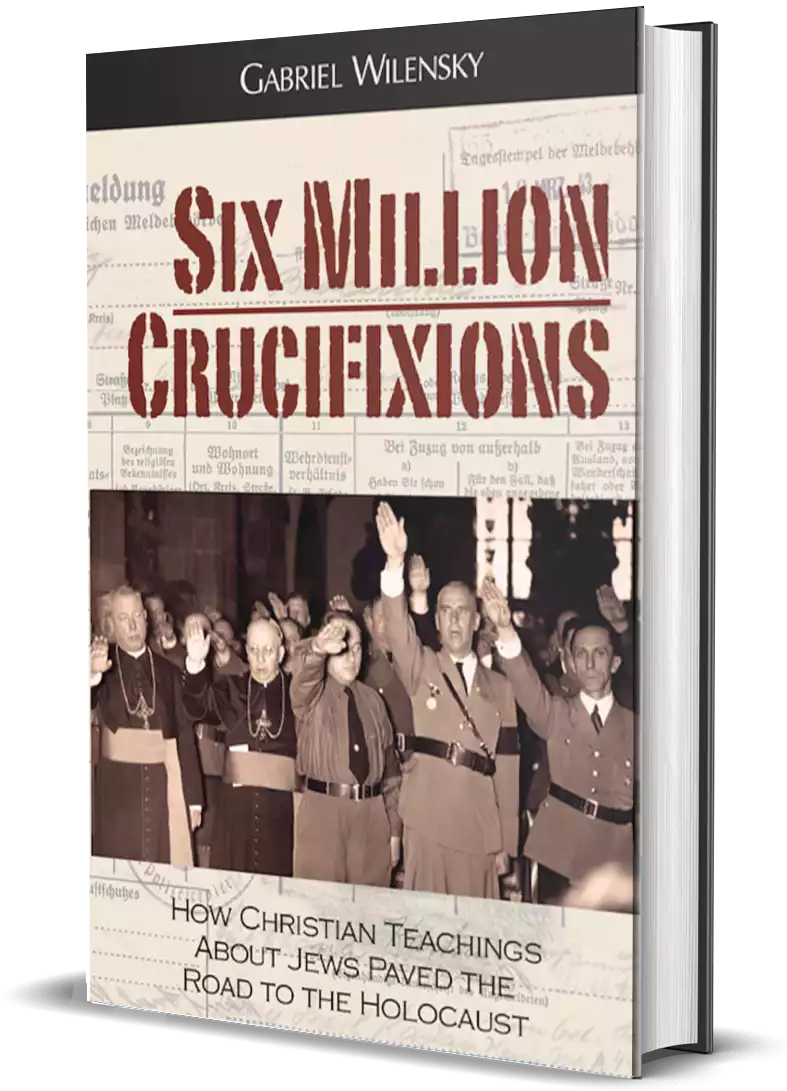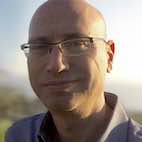Silence Implies Approval
Often, religious people cling to their religion because it provides them with solace and succor during times of despair or hardship. Many times religious people go to their priests, rabbis or imams for advice on matters related to morals and ethics. Given this background, anyone studying religion might conclude religion and its institutions are good things, and religion is a force for good in the world.
But, is that really so? Has religion in general been a force for good in the world? Has it made people more compassionate, more respectful of others, more tolerant of their beliefs? Has the advice given by the authorities of the various world religions been good and made people behave any better?
I would argue the opposite is true, and that any study of the effects of religion throughout human history would show for the most part a direct correlation between religiosity and intolerance, brutality, ignorance, discrimination, lack of compassion and immorality.
As one example out of many, we may look at the role religion played during what was likely the most horrific time in human history, the Second World War. At that time, we find man’s worst behavior toward man, at a level and scope unprecedented until that point. It will be interesting to see what role religion played during this cataclysmic event.
Unfortunately for religion, organized or otherwise, it doesn’t look very good. Clearly the Nazis went on their genocidal rampage motivated by secular reasons, but both the Germans and the vast numbers of helpers they easily recruited in the countries they occupied had all been brought up in the Christian tradition. What this meant is that when the Nazis began their anti-Jewish campaign they found that—like themselves—the population already felt deep antisemitism and already believed the Jews to be evil and enemies of everything that was good. Therefore the Nazis had very little to invent in their campaign against Jews and had no difficulty in persuading anyone to denounce, hunt down and murder their Jewish neighbors.
“You’d think that during the war the Catholic Church would very publicly and loudly object to the genocide taking place in Croatia, given that the impetus behind the genocide was ultimately the propagation of Catholicism, but it didn’t. You’d think that the Catholic Church would attempt to stop the perpetrators, given that they were Catholics strongly loyal to the pope, but it didn’t. You’d think the Catholic Church would give advice and guidance to the Croatian Catholic faithful in an effort to rein them in, but it didn’t. You’d think the pope, Pius XII, would feel shame and embarrassment and distance himself from the Croat Catholics and their leader, but he didn’t.”
If the Nazis were not driven by religious zeal in the execution of the Holocaust, we must then ask the obvious question of what role religion played during that watershed event. Given that the perpetrators had been instructed by their Christian tradition to feel compassion and love for their neighbors, do we have any evidence the majority felt any moral qualms or refrained from murder when asked to kill Jews? Or did the perpetrators willingly and eagerly behave toward Jews in a way that was consistent with what they had been taught for almost two millennia, that is, with contempt and even hatred for them? The answer is also obvious.
For the sake of brevity, it will be interesting to focus on an aspect of the Holocaust that rarely gets the attention it deserves, and that is what happened in Croatia. In that country a puppet Nazi state was established in 1941, led by the terrorist group the Ustasha with its Poglavnik (leader) Ante Pavelić at its helm. From its inception until its demise in 1945 the Ustasha were responsible for the most barbaric acts of the war, making even the German SS pale in comparison. During the rule of the Ustasha regime, more than half a million innocent civilians were slaughtered, many of them using medieval methods: eyes were gouged out, limbs severed, intestines and other internal organs ripped from the bodies of the living. Some were slaughtered like beasts, their throats cut from ear to ear with special knives or saws. Others died from blows to their heads with sledgehammers. Many more were simply burned alive. Some Ustasha perpetrators wore necklaces made from the eyes or ears of their victims.
The actions of the Ustasha are important and relevant in this discussion because the Ustasha were ultra-Catholic and they killed in large part in an effort to rid Croatia of its non-Catholic elements, that is, the largely Orthodox Serbs, the Gypsies, and of course the Jews. Many of the perpetrators were actually Catholic priests. One of them was a Franciscan friar who continued to act as a member of his order as commandant of the notorious Croat concentration camp Jasenovac, where he committed the most heinous atrocities. Sometimes he even wore his Franciscan robes while perpetrating his crimes.
Did the perpetrators consult with their religious leaders before committing these crimes? Did their religious upbringing play any role in making them act the way they did? During the Croatian genocide the Vatican had compiled a list of Croatian priests who had participated in massacres of Orthodox Serbs and Jews with the intention of disciplining them after the war. They never did. Not only that, many perpetrators were protected and given passage to safe havens around the world by members of the Vatican who housed them in Vatican properties, clothed and fed them, and eventually helped them evade justice so they could regroup to fight Communism.
You’d think that during the war the Catholic Church would very publicly and loudly object to the genocide taking place in Croatia, given that the impetus behind the genocide was ultimately the propagation of Catholicism, but it didn’t. You’d think that the Catholic Church would attempt to stop the perpetrators, given that they were Catholics strongly loyal to the pope, but it didn’t. You’d think the Catholic Church would give advice and guidance to the Croatian Catholic faithful in an effort to rein them in, but it didn’t. You’d think the pope, Pius XII, would feel shame and embarrassment and distance himself from the Croat Catholics and their leader, but he didn’t.
Indeed, the leader of the Ustasha, Ante Pavelić was a mass murderer who revered Pope Pius XII, and was aware that Pius XII and his senior advisers thought highly of his militant Catholicism. In April 1941 Pavelić was received by the Pope, creating an uproar at the British Foreign Office who was dismayed that the Pope would even consider meeting with such a notorious mass murderer. They thus described the Pope as “the greatest moral coward of our age.” As the Foreign Office later told the British ambassador to the Holy See, the Pope’s reception of Pavelić “has done more to damage his reputation in this country than any other act since the war began.”
Maybe we should excuse the Pope and the Church for not acting during the war because of the fog of war, lack of communications, the desire to remain neutral, etcetera. But these are all hollow excuses. Moreover, even if we were willing to accept them, what could possibly explain the lack of acts of repudiation after the war for the genocide in Croatia?
In May 1945, after having learned of Hitler’s death, Cardinal Bertram of Breslau ordered that “a solemn requiem mass be held in commemoration of the Führer. . .” so that the Almighty’s son, Hitler, be admitted to paradise. A solemn requiem mass is celebrated only for a believing member of the Church and if it is in the public interest of the Church. Hitler was not a believing member of the Church and only a Church deeply steeped in their own anti-Jewish teachings and the grotesque twist to them that Hitler gave them could think that a solemn requiem for Hitler was a good, moral thing to do and that it was in the Church’s public interest. Did the Pope or the Catholic Church rebuke Cardinal Bertram, then or any time after that? No, it did not.
Given this background, we should not be too surprised to learn that just as the year 2010 was coming to a close a mass was celebrated in a Zagreb church honoring the 49th anniversary of the death of the Ustasha mass murderer Ante Pavelić. The mass was held by priests Vjekoslav Lasić and Stanislav Kos, who referred to Pavelić as a respectable man who made sacrifices for all of Croatia. You’d think the Catholic Church would take advantage of this opportunity to very loudly and publicly repudiate the actions of the Ustasha and its leader Pavelić, but you’d be wrong. What was the official reaction of the Catholic Church to this outrageous mass? So far their reaction is consistent with their reaction during the Holocaust: a deafening silence.

Grab Your Copy Today!
Six Million Crucifixions
Traces the history of antisemitism in Christianity and the role that played in making possible the Holocaust.
Want to stay informed about the topic?
Subscribe below.

